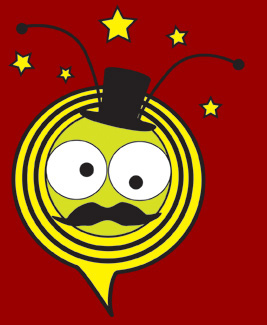
 D
D Z
ZThis year's Best Picture nominees heavily feature the wonder that is Dudes That Are Really Good at Things, including: an astrophysicist genius, a music prodigy, a sniper extraordinaire, and, in the case of The Imitation Game, a standardized test whiz. Nice work, gents!
The Imitation Game sort of tells the story of Alan Turing, a well-dressed gay man who lost the love of his life when he was a child, invented a machine with the ability to decipher Nazi cryptograms in his mid 20's, proposed to a (female) cryptanalyst in his late 20's, called off the proposal in his early 30's, was charged with gross indecency for committing homosexual acts in his 39th year, and died at 41. This all, on paper, makes for pretty good biopic fodder, if you ask me. You can picture Turning's sharp little outfits, imagine the sound of the machine churning out data, anticipate the feeling of the tears welling up when his buddy dies... Hell, it sounds a lot like A Beautiful Mind (without the schizophrenia!) (but with the sexuality reveal!), and that won Best Picture! Love that movie!
It doesn't work. Sorry, but for me, The Imitation Game just doesn't work at all. Alan Turing is a complex man, but that doesn't mean we have to cover all of those complexities. In my opinion, a good biopic gives us a glimpse into a person's life via one aspect of their life. For example, this year's The Theory of Everything (imperfect, but better) isn't about Stephen Hawking's entire life. While it touches on various times in his life, the film is grounded in his relationships with the women he falls in and out of love with. We don't leave the film with a broad understanding of the theory of relativity, nor are we supposed to. Ghandi's about Ghandi's life, sure, but according to the parameters of that film, Ghandi's life didn't actually begin until he was thrown off of a train when he was 24. This is where his idea of non-violent protest is born. That's what that films about.
Alan Turing is a lot of things in this film, but we never seem to land on any of them for long enough to really "learn" about them. We spend a lot of time talking about a machine we will never even begin to understand. We spend a lot of time visiting and revisiting Turing's childhood, only to get a small idea of its relevance to the present. Relationships come in and out of focus. So does the topic of his sexuality. After being yanked around from topic to topic for 90 minutes, I just didn't care. I did care enough to go home and read up a little on Turing, only to discover that the screenplay is filled with enough bunk to be frequently fictitious. To quote screenwriter Graham Moore, the goal of the script was to "create the experience of sort of 'Alan Turing-ness' for an audience based on his life." I don't know what that means, but maybe the words are supposed to be processed through Turing's machine "Christopher" before they make sense. Benedict Cumberbatch is good as Alan Turing. I haven't seen him in enough things to really get a grasp of the "transformation" that he underwent. He simultaneously cries and talks in one scene, so I can get behind his performance. Keira Knightly is very pretty and kind as Alan Turing's beard, Joan Clarke. I usually kind of like her in things, and it's nice that she's been nominated for an Oscar for being even more likable than normal. Kudos, Knightly.
A twice recycled line in the film states: "Sometimes it is the people no one imagines anything of who do the things that no one can imagine." I can't imagine I'll ever watch this film again, but who knows, maybe I'll do the thing that no one can imagine and imagine I'll watch this film again. I imagine not.
 B
BThe Imitation Game is the story of Alan Turing and his machine that both helped crack German codes in World War II (thus helping to end the war), and that eventually paved the road for modern computers. This is such an important story told with such concern for humanity. It also focuses on Alan Turing the man as someone who thought differently than the rest, and who was ridiculed and tortured by society both because of his deviation from the norm and because he was gay. Thus, the story works so powerfully on different levels.
The story is handled in the same vein as The Social Network, A Beautiful Mind, and Good Will Hunting ( quirky genius tries to work through logic to build a program; a group of colleagues huddle around him while he works; occasional celebrations of small victories; occasional fights within the team; a girl that stirs up the group a bit), but this is handled with far greater expertise.
Benedict Cumberbatch is marvelous. He plays Alan Turing in a naturally neurotic way. We get tinges of his Sherlock character, yet this is more subtle and with more delicate mannerisms and nervous ticks. Keira Knightley also delivers her best performance to date. She is terribly cute and charming, and she lightens the mood adding touches of humor.
All of the artistic elements come together beautifully as well: production design, costuming, cinematography. However, nothing adds to the beauty of this film better than a lush, sometimes haunting score by Alexandre Desplat.
9/10
